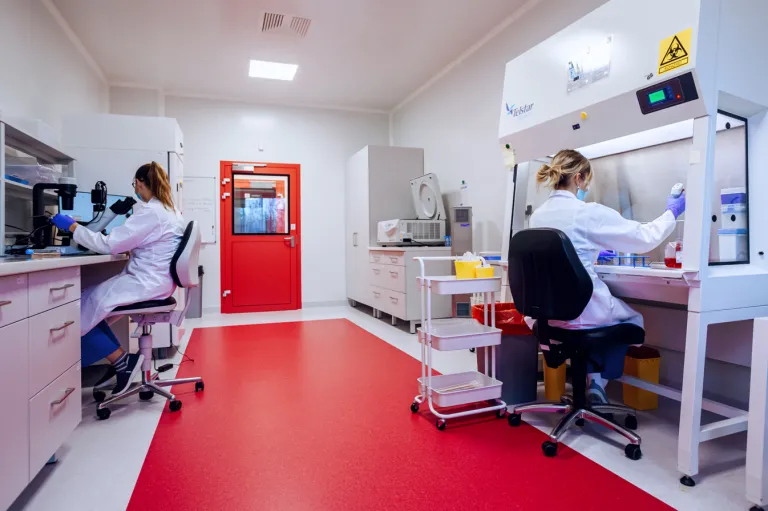The first weeks of pregnancy are extremely stressful for most pregnant women. This is mainly related to the risk of miscarriage, which is highest in the first trimester. For this reason, any spotting in early pregnancy is cause for concern and is a common reason for a visit to the gynecological emergency room. Find out what spotting in the first weeks of pregnancy can mean.
Spotting in early pregnancy- causes
According to The American College of Obstetricians and Gynecologists, miscarriages within the first 13 weeks of pregnancy affect up to 10% of symptomatic pregnancies. For this reason, too, for many pregnant women, genital spotting is unequivocally associated with a high risk of pregnancy loss. In fact, one of the symptoms of miscarriage is bleeding or spotting. If necrosis occurs, and as a result, bleeding from the genital tract, we have a miscarriage in progress. However, it is important to remember that not every miscarriage manifests itself in bleeding. This is because it can be a retained miscarriage, which is diagnosed by a gynecologist during an ultrasound, when the embryo does not grow or its heart function does not appear. Likewise, not all bleeding is a clear sign of miscarriage. This may include. Implantation spotting or so-called. Threatened miscarriage, when the pregnancy has not died. Bleeding in early pregnancy can also be associated with abnormal localization of the pregnancy, or so-called “bleeding”. Ectopic (ectopic) pregnancy.
Spotting in early pregnancy-is it dangerous?
Any bleeding or spotting during pregnancy requires consultation with a gynecologist. This will provide the pregnant woman with information on the development of the pregnancy and any abnormalities. In the case of a pending or accomplished miscarriage, it is impossible to intervene in any way due to the fact that necrosis has already occurred. However, if it is a threatened miscarriage, where there is spotting without pregnancy death, it is possible to try to prevent a miscarriage, for example, by using progesterone. If the bleeding is heavy and prolonged, the woman may develop anemia, risking fainting and feeling unwell. In such a situation, hospitalization, hydration or iron supplementation may be necessary.
Spotting in early pregnancy-when to see a doctor?
Any pregnant woman who is experiencing genital spotting should visit her health care provider. If the bleeding is not profuse, there is no need to visit the gynecology and obstetrics ED. And when appointments with a gynecologist are far away, the only option for many women is to come to the ED at the maternity hospital. There, after an ultrasound and the necessary laboratory tests, the mother-to-be will receive information on the current status of her pregnancy and recommendations for further management. If an obstetric miscarriage occurs or an ectopic pregnancy is suspected, it is always necessary to visit the hospital where the procedure will take place, for example. Spooning or pharmacological induction of miscarriage.
Spotting in early pregnancy- treatment
The management of spotting in early pregnancy depends primarily on its cause. If it is a pending miscarriage, most often a check of beta hcg levels after the next period and a follow-up visit to a gynecologist with an ultrasound will suffice. In the situation of a retained miscarriage, it is necessary to clear the uterine cavity through a curettage procedure or with the help of pharmacotherapy. If the cause of genital spotting is an ectopic pregnancy, surgery or attempts at treatment with methrotrexate may be necessary.
It is worth remembering that spotting in early pregnancy is not synonymous with pregnancy loss and affects up to 25% of pregnant women. 10% of these will end in necrosis, while in the remaining cases the pregnancy will develop normally.
Rate this article:











